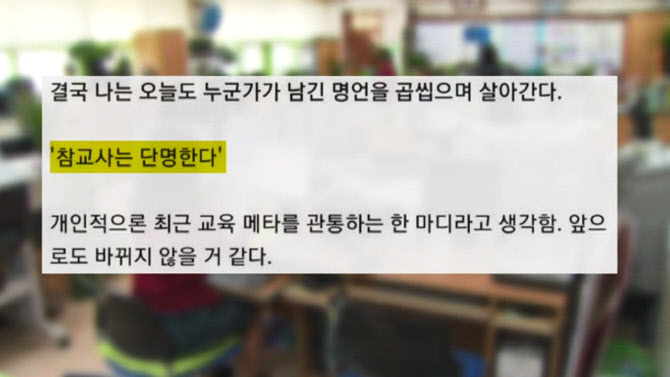기분 상해죄
기분 상해죄는 말 그대로 상대방의 기분을 상하게 하는 행위를 범한 것을 의미합니다. 한국의 형법상으로는 폭행치상과 같은 형식으로 다루어지며, 최근에는 법적인 대응이 강화되어 서로의 기분을 상하게 하는 피해자들이 이에 대한 제재를 받고 있습니다.
기분 상해죄 범죄 유형
기분 상해죄는 크게 다음과 같은 세 가지 유형으로 나뉩니다.
첫 번째는 일반적인 기분 상해죄로서, 말이나 행동으로 상대방의 기분을 상하게 하는 것을 의미합니다. 자신이 말한 말을 다른 사람이 감정적으로 받아들이면서 기분이 나빠지거나, 자신이 한 행동이 다른 사람에게 기분 상해를 불러오는 것입니다.
두 번째는 정신적 상해죄로서, 상대방의 정신적 건강에 직접적인 영향을 미치는 행위로 정의됩니다. 예를 들어, 스토커와 같은 행위는 정신적 상해죄에 해당됩니다.
세 번째는 특수상해죄로서, 상대방에게 육체적 상해를 입히는 경우를 의미합니다. 이러한 행위는 일반적으로 폭행치상과 같은 형식으로 다루어집니다.
기분 상해죄 발생 요인
기분 상해죄는 상대방의 기분이나 정신적인 건강에 영향을 미치는 것이므로, 다양한 요인으로 발생할 수 있습니다. 대표적인 발생 요인 중 하나는 대인관계 문제입니다. 사람 사이에서의 갈등, 질투, 보복 등으로 인해 기분 상해를 불러일으키는 상황이 자주 발생합니다. 또한, 인터넷 상에서의 악플이나 비난글 등도 기분 상해죄의 유형으로 대응됩니다.
또한, 일상 생활 속에서의 일어나는 사소한 일들에서도 기분 상해죄가 발생할 수 있습니다. 이는 주로 상대방의 실수나 부주의로 인한 일어나는 상황에서 기분 상해를 불러일으키는 경우입니다.
기분 상해죄 피해자 심리적 영향
기분 상해죄는 상대방의 기분을 상하게 하는 행위이므로, 피해자의 심리적인 영향은 굉장히 커질 수 있습니다. 특히, 대인관계 문제와 관련된 경우라면 피해자의 자존감이 크게 저하될 수 있습니다.
기분 상해죄로 인해 상대방의 정신적 건강에 직접적인 영향을 미친 경우라면, 피해자는 수년 동안 이러한 피해를 받으며 심한 우울증이나 자살 등의 심각한 문제로 이어질 가능성도 있습니다.
기분 상해죄 처리 방법
기분 상해죄를 처리하는 가장 좋은 방법은, 상대방과 대화를 통해 문제를 해결하는 것입니다. 이로 인해 양측 모두 이해가 가능하며, 상황을 악화시키는 것을 막을 수 있습니다.
하지만, 때로는 대화로 문제를 해결할 수 없는 경우도 있습니다. 이 경우에는 법적인 대응이 필요합니다. 기분 상해죄의 경우, 국내에서는 “기분 상해죄”라는 형법이 있습니다. 이 법에 따라 상대방에게 피해를 주었다는 이유로 처벌을 받을 수 있습니다.
기분 상해죄 예방 방법
기분 상해죄를 예방하는 가장 좋은 방법은, 다른 사람의 기분을 고려하는 것입니다. 어떤 말이나 행동을 할 때, 상대방이 받아들일 수 있는 기분을 먼저 고려해보는 것이 중요합니다.
또한, 대인관계 문제가 발생하지 않도록 하는 것도 중요합니다. 불필요한 경쟁이나, 상대방에게 불쾌한 행동을 주지 않도록 주의하는 것이 좋습니다. 이와 같은 작은 노력들이, 큰 문제를 예방하는 데 큰 도움이 됩니다.
기분 상해죄 사례 및 판결 분석
무슨무슨죄
‘무슨무슨죄’는 상대방에 대한 혐오나 비하, 차별적인 행동 등을 이유로 처벌을 받을 수 있는 형법입니다. 이에 따라, 기분 상해죄가 발생하는 경우도 많이 있습니다.
예를 들어, 최근에는 ‘무슨무슨죄’로 처벌 받은 사람이 SNS에서 다른 사용자에 대해 차별적인 행동을 했다는 이유로 운영진에 붙잡혀 처벌을 받았습니다. 이러한 사례들을 보면, 우리 사회에서는 기분 상해죄에 대한 대처가 강화되고 있다는 것을 알 수 있습니다.
정신적 상해죄
정신적 상해죄는 상대방의 정신적인 건강에 직접적인 영향을 미치는 행위를 의미합니다. 기분 상해죄와 비슷하지만, 보다 심각한 범주에 해당됩니다.
예를 들어, 일부 스토커가 자신의 미친 사랑에 빠져 상대방에게 정신적인 상해를 불러일으키는 경우가 많습니다. 이는 법적으로도 대처가 필요한 심각한 문제입니다.
상해 반의사불벌죄
상해 반의사불벌죄는 범죄인의 의도와는 상관없이 상대방에게 상해를 주는 경우에 적용되는 형법으로, 기분 상해죄와는 다소 다릅니다. 이 경우에는 상대방에게 상해를 주는 것이 의도는 아니었더라도, 그 결과로 인해 상대방이 피해를 입었다는 것을 인식해야 합니다.
특수상해 형량
특수상해 형량은 폭력적인 행위나 범죄로 인해 상대방에게 심한 피해가 발생하였을 경우에 적용되는 법적인 대응입니다. 이 때, 범죄인이 일어난 행위를 직접적으로 일으킨 것인지, 아니면 간접적으로 일으켰는지에 따라 형량이 결정됩니다.
폭행치상 상해 차이
폭행치상 상해는 육체적 상해를 주는 경우를 의미하며, 이러한 경우면 기분 상해죄보다 더 심각한 경우가 많습니다. 이는 폭력적인 범죄이기 때문입니다.
하지만, 때로는 폭력적인 행위가 아니더라도 상대방의 정신적이나 감성적인 측면에서 상해를 불러일으키는 경우도 있습니다. 그렇다면, 이러한 경우는 어떻게 대처해야 할까요?
아 몰라 그냥 봐
기분 상해죄가 사실인지 아닌지 모호한 경우도 많습니다. 이 때, 법적으로 어떻게 대응해야 할까요? 올바른 상황에서 적절한 대응은, 상대방과 직접적인 대화를 통해 문제를 해결하는 것입니다.
하지만, 상대방이 스토커나 악플러와 같은 범죄가 아닌, 간단한 일상적인 문제를 일으키고 있다면, 그냥 방치하거나 잊어버리는 것이 가장 좋은 대응이 될 수 있습니다.
사법살인
사법살인은 형법 상에서는 가해자가 적극적으로 법적인 제재를 받을 가능성이 있음에도 불구하고, 예방 조치를 하지 않은 법원의 실수로 죽음에 이르게 된 경우를 의미합니다. 이는 강력한 법적 대응이 필요한 심각한 범죄 형태입니다.
폭행치상기분 상해죄
폭행치상기분 상해죄는 폭행치상과 기분 상해죄가 결합된 범죄를 의미합니다. 이러한 경우, 법적으로 기분 상해죄와 폭행치상이라는 두 개의 범죄 형태가 모두 적용될 수 있습니다.
FAQs
1. 기분 상해죄는 어떤 상황에서 발생할 수 있나요?
기분 상해죄는 대인관계 문제, 정신적 건강 문제 등으로 발생할 수 있습니다. 일상적인 상황에서 우발적으로 발생하거나, 일부 개인이 일부 의도적인 행동으로 인해 발생할 수도 있습니다.
2. 기분 상해죄를 예방하는 방법은 무엇인가요?
기분 상해죄를 예방하는 가장 좋은 방법은 대화와 이해를 통해 상대방과 관계를 유지하는 것입니다. 이상적인 대인관계를 유지하면, 기분 상해죄를 예방하는 데 큰 도움이 됩니다.
3. 기분 상해죄의 판결 분석에서 무슨무슨죄가 어떤 의미인가요?
‘무슨무슨죄’는 상대방에 대한 비하, 혐오, 차별 등으로 인해 처벌을 받을 수 있는 범주입니다. 이 범주에 해당하는 경우는, 기분 상해죄가 발생했을 가능성이 높습니다.
4. 폭행치상기분 상해죄는 무엇인가요?
폭행치상기분 상해죄는 폭행치상과 기분 상해죄가 결합된 범죄를 의미합니다. 양측 모두를 대상으로 적용될 수 있으며, 피해자의 상태와 범죄의 종류에 따라 적용 범위가 다를 수 있습니다.
사용자가 검색한 키워드: 기분 상해죄 무슨무슨죄, 정신적 상해죄, 상해 반의사불벌죄, 특수상해 형량, 폭행치상 상해 차이, 아 몰라 그냥 봐, 사법살인, 폭행치상
Categories: Top 76 기분 상해죄
니 얼굴이 기분 상해(태남이들의 기분상해죄)
여기에서 자세히 보기: future-user.com
무슨무슨죄
In this article, we will explore the origins and meanings of 무슨무슨죄 in Korean culture and how it is used in various contexts. We will also cover common misconceptions and frequently asked questions about this phrase.
The Origins of 무슨무슨죄
The origins of 무슨무슨죄 can be traced back to Korean folktales and historical events. One such tale is the story of General Kang Gam-chan, a famous general during the Goryeo Dynasty. It is said that after defeating the enemy in battle, General Kang was falsely accused of treason by jealous officials. When he was brought before the king to face the charges, he exclaimed, “무슨무슨죄를 내게 적시려느냐!” (What crime, what crime do you accuse me of!). This phrase became famous and is still used today as an expression of outrage towards false accusations.
The phrase also has historical significance in the Korean independence movement against Japanese colonial rule in the early 20th century. Resistance leaders would often use 무슨무슨죄 to express their anger and frustration towards unjust treatment by the Japanese authorities. This phrase became a symbol of resistance and solidarity among Koreans fighting for independence.
Today, 무슨무슨죄 has become a part of Korean everyday language and is used in various contexts to express disbelief or frustration towards a person’s actions or behavior.
The Meanings of 무슨무슨죄
Although 무슨무슨죄 can be translated to “what crime, what crime”, it is important to note that it is not always used in a literal sense. The phrase is often used as a rhetorical question to express disbelief or frustration towards a person’s actions or behavior.
In some cases, 무슨무슨죄 can be used to express shock or incredulity towards someone’s behavior. For example, if someone tells a story about a person who acts in an extremely selfish or irresponsible manner, the listener might respond with a shocked “무슨무슨죄야!” to show their disbelief.
In other cases, the phrase can be used to express frustration or disappointment towards someone’s actions. For example, a parent might use 무슨무슨죄 to scold their child for doing something wrong. The phrase can also be used to criticize someone’s behavior or choices, such as in the case of a politician who acts in a way that goes against their constituents’ interests.
Overall, 무슨무슨죄 is a highly versatile phrase that can be used to express a range of emotions and sentiments in Korean culture.
Common Misconceptions about 무슨무슨죄
One common misconception about 무슨무슨죄 is that it is solely used to express indignation towards false accusations. While this phrase does have historical significance in this context, it has developed a much broader range of meanings in contemporary Korean culture.
Another misconception about 무슨무슨죄 is that it is always used in a formal or serious context. In reality, the phrase is often used in casual conversation between friends or family members to express surprise or disbelief towards a humorous or lighthearted situation.
Additionally, some may assume that 무슨무슨죄 is a negative or confrontational phrase. While it can certainly be used in this way, it is important to note that the phrase can also be used in a more playful or teasing manner, such as when friends joke around with each other.
FAQs about 무슨무슨죄
Q: When is it appropriate to use 무슨무슨죄?
A: 무슨무슨죄 is a versatile phrase that can be used in a variety of contexts. It is often used to express surprise or frustration towards someone’s actions or behavior.
Q: What are some common situations in which 무슨무슨죄 might be used?
A: 무슨무슨죄 might be used to express outrage towards false accusations, frustration towards someone’s behavior, or shock towards a surprising or unusual situation. It can also be used in a playful or teasing manner among friends.
Q: Is 무슨무슨죄 considered a formal or informal phrase?
A: 무슨무슨죄 can be used in both formal and informal contexts, depending on the situation and the speaker’s relationship with the person they are addressing.
Q: Does 무슨무슨죄 have any historical significance in Korean culture?
A: Yes, 무슨무슨죄 has historical significance in the Korean independence movement against Japanese colonial rule in the early 20th century. Resistance leaders used the phrase to express their frustration and anger towards the unjust treatment of Koreans by the Japanese authorities.
Conclusion
무슨무슨죄 is a commonly used phrase in Korean culture that has a variety of meanings and uses. Originating from folktales and historical events, the phrase has become a symbol of resistance and solidarity among Koreans fighting for independence from unjust authority.
Today, 무슨무슨죄 is still used in a range of contexts to express disbelief or frustration towards a person’s actions or behavior. It is a highly versatile phrase that can be used in both formal and informal situations, depending on the speaker’s intent and the context in which it is used. Despite its varied uses, 무슨무슨죄 remains a significant part of Korean culture that continues to be used by people of all ages and social backgrounds.
정신적 상해죄
In this article, we will explore the legal definition of 정신적 상해죄, the types of behaviors that may constitute this crime, potential penalties for committing it, and some frequently asked questions on the subject.
Legal Definition of 정신적 상해죄
According to South Korean Criminal Law, 정신적 상해죄 is defined as intentionally causing emotional or psychological harm to another person. This harm can be in the form of mental anguish, distress, suffering, or other forms of emotional pain.
Some examples of behaviors that may be considered 정신적 상해죄 include:
– Threatening to harm or kill someone in order to cause them fear or anxiety
– Making cruel or insulting comments about someone’s physical appearance, ethnicity, gender, or other personal attributes in order to cause them emotional distress
– Spreading rumors or false information about someone in order to damage their reputation or cause them embarrassment
– Stalking or harassing someone to the point where it causes them significant emotional distress or interferes with their daily life
– Using physical force or the threat of physical force to intimidate someone or cause them to feel fearful or anxious
It’s important to note that the harm caused by these behaviors must be significant in order to qualify as 정신적 상해죄. Minor insults or disagreements are not enough to constitute this crime. Rather, the harm must be severe enough to cause lasting emotional trauma or significant disruption to a person’s daily life.
Potential Penalties for 정신적 상해죄
If someone is found guilty of 정신적 상해죄 in South Korea, they may face a variety of penalties. The severity of the penalty will depend on the specific circumstances of the crime, as well as the criminal history of the offender.
Some potential penalties for 정신적 상해죄 include:
– Fine: Depending on the severity of the harm caused, the offender may be required to pay a fine as a form of punishment.
– Imprisonment: In some cases, offenders may be sentenced to a term of imprisonment. The length of the sentence will depend on the severity of the crime, as well as any aggravating or mitigating factors.
– Restraining Order: The victim of 정신적 상해죄 may be able to obtain a restraining order against the offender, which prohibits them from contacting or approaching the victim.
– Compensation: In addition to a criminal penalty, the offender may be required to compensate the victim for any harm caused. This compensation may include medical expenses, lost wages, and other damages.
FAQs about 정신적 상해죄
1. Is 정신적 상해죄 the same as physical assault?
No, 정신적 상해죄 refers specifically to emotional or psychological harm, whereas physical assault involves physical harm or injury. However, it’s possible for an act of physical assault to also qualify as 정신적 상해죄 if it was intended to cause emotional harm.
2. Can minors be charged with 정신적 상해죄?
Yes, minors can be charged with 정신적 상해죄 if they intentionally caused emotional or psychological harm to another person. However, the penalties for minors may be different than those for adult offenders.
3. What is the difference between 정신적 상해죄 and defamation?
Defamation involves making false statements about someone that damage their reputation. Although this can cause emotional harm, it is a separate offense from 정신적 상해죄, which specifically involves intentional infliction of emotional or psychological harm on another person.
4. Can someone be charged with 정신적 상해죄 if they didn’t intend to cause harm?
No, in order to be charged with 정신적 상해죄, the offender must have intentionally caused emotional or psychological harm to another person. Accidentally causing harm or causing harm through negligence would not qualify as this offense.
5. Does the victim need to prove that they suffered emotional harm for a charge of 정신적 상해죄 to be valid?
Yes, in order for a charge of 정신적 상해죄 to be valid, the victim must provide evidence that they suffered emotional harm as a result of the offender’s actions. This evidence could include medical records, witness statements, or other forms of documentation.
Conclusion
정신적 상해죄 can have serious consequences for both the offender and the victim. It’s important to understand the legal definition of this crime, as well as the potential penalties for committing it. By promoting awareness of 정신적 상해죄 and its consequences, we can help create a safer and more respectful society for all.
주제와 관련된 이미지 기분 상해죄

기분 상해죄 주제와 관련된 이미지 44개를 찾았습니다.









![캐치]기분상해죄 캐치]기분상해죄](https://iflv14.afreecatv.com/clip/20230416/157/3e73c5f6-9388-4261-adad-b32b21719a17/1158157_v.jpg)




![클립]진이기분상해죄 증거영상 | AfreecaTV VOD 클립]진이기분상해죄 증거영상 | Afreecatv Vod](https://iflv14.afreecatv.com/clip/20230210/112/9ac21f02-b486-4ea8-89d5-424abb6e5110/12602112_r.jpg)








Article link: 기분 상해죄.
주제에 대해 자세히 알아보기 기분 상해죄.
- 기분상해죄 – 나무위키
- 기분상해죄라는 게 있을까? – 실시간 베스트 갤러리
- 니 얼굴이 기분 상해(태남이들의 기분상해죄) – YouTube
- 기분상해죄 – YouTube
- 내기분상해죄 레전드.jpg – 유머/움짤/이슈 – 에펨코리아
- HOT – 기분상해죄로 분식집 고소하고 싶다는 뽐뿌인 – 더쿠
더보기: future-user.com/wki
Trả lời